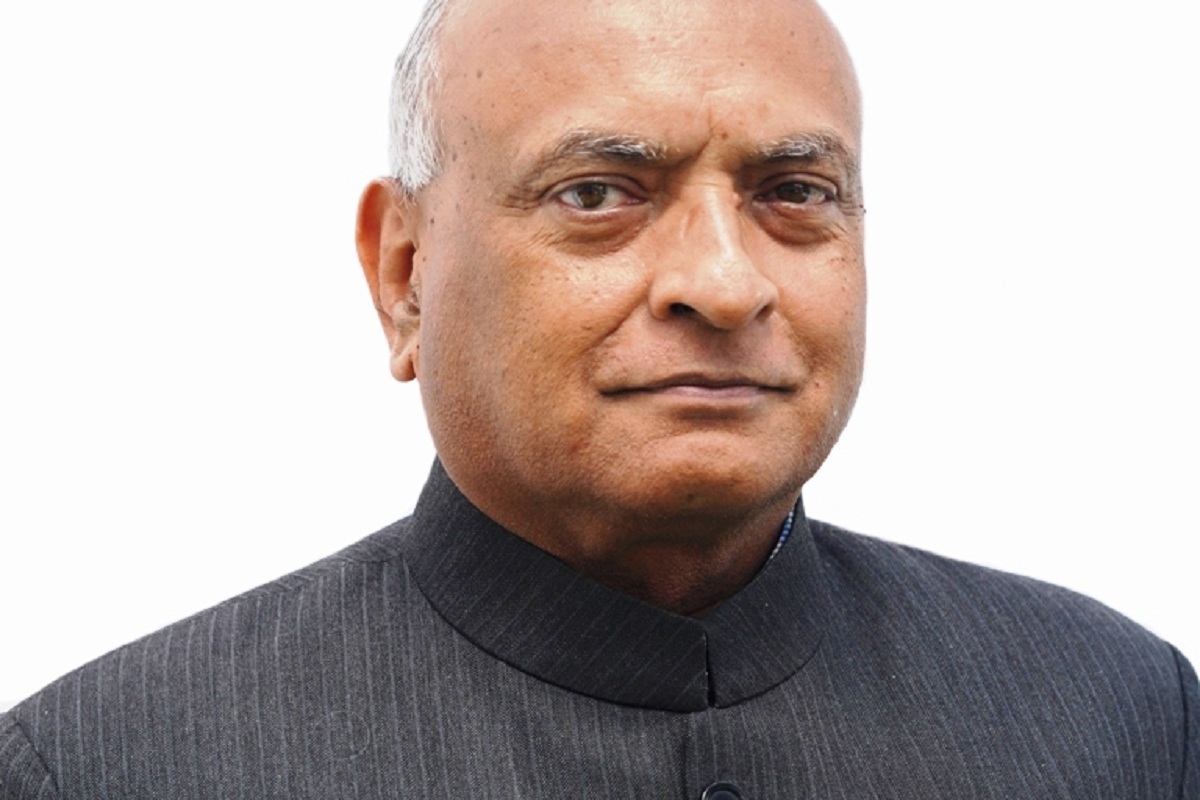Top TRF terrorist among two gunned down in Kulgam encounter
IGP (Kashmir) VK Birdi hailed the elimination of the top terrorist as a big achievement.
The aspiring youth of Ladakh remain the main drivers of its development as they are well-educated, informed, innovative, connected with the outside world, highly-skilled, ambitious, enthusiastic, committed and diligent. That is why I feel the future of Ladakh is very promising, said Mathur.

RK Mathur, Lt Governor of Ladakh. (SNS)
Ahead of the completion of the first anniversary on Wednesday of Ladakh becoming a union territory (UT), Lt. Governor RK Mathur on Tuesday said that the administration is working with all stakeholders, especially young entrepreneurs and agripreneurs to make Ladakh self-reliant, carbon-neutral and capital of renewable energy.
Ladakh was separated from Jammu and Kashmir on 5 August last year when the Article 370 was abrogated by the Modi government.
Elaborating the development schemes of Ladakh, Mathur said that the administration has already prepared a draft vision document titled ‘Ladakh 2050’.
Advertisement
The document is presently going through an intensive review by all the stakeholders before finalization. Ladakh can aspire to become the renewable energy capital of India. Similarly, through the developments strategy which has been outlined, we can aspire not only for a carbon-neutral Ladakh that is prosperous.
It is because of these thoughts that the predominant feeling in UT Ladakh today is hope for the fulfilment of their expectations and aspirations.
The aspiring youth of Ladakh remain the main drivers of its development as they are well-educated, informed, innovative, connected with the outside world, highly-skilled, ambitious, enthusiastic, committed and diligent. That is why I feel the future of Ladakh is very promising, said Mathur.
He said that the onset of the usual harsh winter soon after the formation of UT Ladakh was a major challenge. During this period, the region remains isolated from the rest of the country for five to six months. The IAF ferried essential commodities and stranded people as the roads remained covered with snow. Steps have been taken to provide uninterrupted power supply in the area.
Unfortunately, just as our working season was about to start in March, the global pandemic of COVID-19 spread across the world and Ladakh too was impacted by it. This forced the administration to devote substantial energy to tackle the issue. Two dedicated hospitals have been established for this purpose.
The Lt. Governor said that the UT received a highest-ever budgetary allocation of Rs. 5154 crores during 2019-20, followed by an allocation of Rs. 5,958 crore in 2020-21. In addition, the highest-ever non-lapsable budgetary allocation of Rs. 232.41 crore each has been made to the Hill Councils of Leh and Kargil. The centre has proactively assisted Ladakh.
The centre has initiated several steps to boost traditional medical knowledge of Ladakh and for producing qualified doctors (Amchis), National Research Institute for Sowa Rigpa has been sanctioned with a budget of Rs 47 crore. A medical college has also been sanctioned for the UT. Steps were afoot to tap 7500 MW solar power, besides many other initiatives.
Listing the challenges before the UT, Mathur said that the immediate challenge for the administration is a new administrative structure in Ladakh. This includes the UT administration and a new revenue division.
Advertisement